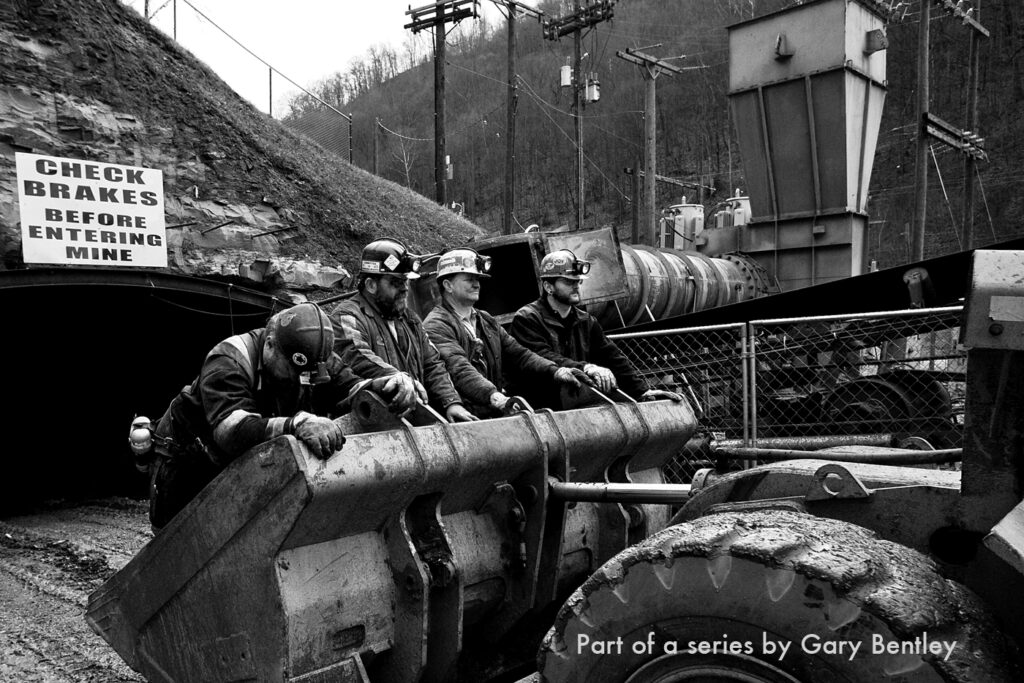In January, I came across the first of a new series on the Daily Yonder titled “In the Black.” It is an accurate and gritty portrayal of coal mining as told through the personal story of former eastern Kentucky coal miner, Gary Bentley. Admittedly, I lost track and didn’t continue with the series before eventually dropping back in on his 16th installment, “An Unlikely Band of Brothers.” As with the first segment, a theme of drug abuse emerged, painting present day miners in a not so flattering light.
I thought back to the many hard working family men I looked up to in my life. Men like my father, grandfathers, great grandfather, and many of my uncles. As I thought of these people, I became angry at this new depiction of miners Mr. Bentley was exposing to the world. My sensitivity to Appalachian stereotyping began to flare, leading me to post the following comment…
“Most of the guys I worked with were good guys and didn’t abuse drugs. I’m not surprised people are eating this up though. Just like the local color writers around the turn of the century, and the newscasts of the 1960s. It’s a fine line…write about all the nasty stuff to get readership, but humanize people as compassionate individuals just enough to throw off the scent of embellishment. What I have to ask is….what is the purpose of this series?”
I even went so far as to send a heavy handed e-mail to the editor of the Daily Yonder, Tim Marema, stating, “When I read this series, I cringe to the core with the thought of yet another Appalachian stereotype embellished to increase readership and ratings. There’s no prior context to delineate the reasoning for the abuse that does exist, making this series otherwise purposeless.”
Bentley took my criticisms in stride and we have chatted on Facebook numerous times since. Marema did as well, offering me the opportunity to write about my position on the “Daily Yonder.” That was at the end of April. Before I responded, I wanted to read all of Bentley’s articles before submitting more of my opinion to the public record.
In reading Bentley’s work, I understand our differences and respect them. I also appreciate the Daily Yonder for publishing stories that would not normally be seen in mainstream media, but I have to continue asking, “…what is the purpose of this series?” Bentley’s reply to my comment was simple, “Nick, I am writing about the people I met while working underground and I am writing the truth. Just sharing my experience as a former coal miner. Nothing more, nothing less.”
The problem is, portraying coal mining today bares with it some ethical responsibility and therefore a dilemma for the writer and publisher. In showing the contemporary truths of this most recent generation of coal miners (without historical and socioeconomic context), are we doing justice to our people, or causing more harm?
My fear is that this series places too much burden on readers to research and understand the situations being depicted. My fear is that people will read and judge miners without understanding the decades of corporate exploitation that led up to their present day lifestyles of instant gratification. I also fear that the image of coal miners that once existed, of the proud family men and selfless advocates for worker’s rights, although somewhat romanticized, is being painted over by the images of this latest generation. How will these new depictions affect the work and political maneuvering being done to bring Appalachia much needed economic diversification?
Right now, there are people working to re-train coal miners and create a workforce capable of attracting new industry. By exposing the drug issues found among a few miners within a few mines, does the possibility exist that people of influence will read this series and reconsider assisting Appalachian people ?
In the end, Bentley’s story is one that certainly needs to be to be told, but how and why it is told is just as important—if not more important—than the truths it reveals.

